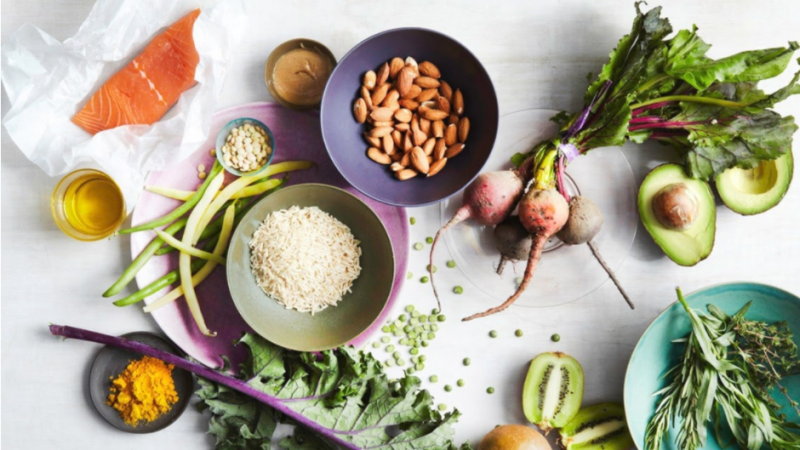When it comes to eating, a lot of people are not doing it in a healthy way. Most of them eat mainly to satiate their hunger and/or appetites. I am sure that even you who are reading this mostly do think about food only when you are hungry or when your appetite is whetted. If that’s right, then believe you me, you are not eating healthy and therefore you’re widening your nutritional gap/hole despite always ordering meals that you think are great from your meal delivery service. Here is where you can source all your groceries, meals, fruits and even dietary supplements for a balanced diet without a nutritional gap. These professionals will point you to a number of reputable meal delivery services any of whom you can purchase these items from.
What Is a Nutrition Hole or Gap?
Nutrition hole refers to the nutrient gap that forms when your body is high in certain types of nutrients and low in other types of nutrients simply because you do not eat in a healthy manner. This is worsened by the fact that most standard diets do not offer a comprehensive range of nutrients our bodies need to grow healthier and stronger. These diets are generally low in fiber, calcium, magnesium, potassium as well as Vitamins A, and E, all of which are very essential for the body as you’ll learn shortly afterward.
ADVERTISEMENT |
How Do We Solve Nutrition Gap?
The nutrition gap can be successfully closed by adopting a healthy diet, which is sure to provide your body with all the nutrients that are essential to it. The nutrients include carbohydrates, proteins, fats, dietary fiber, water, minerals, and vitamins. Your breakfast meal should consist of carbohydrates, dietary fiber, minerals, vitamins, and water. Your lunch meal, on the other hand, should supply your body with carbohydrates, proteins, minerals, and vitamins. Remember, there are many different types of minerals, vitamins, and water. Avoid taking the same vitamins you already took in the morning. Lastly, your dinner should be complete with all the seven nutrients that are considered essential for our bodies. It should be made up of carbs, proteins, fats, dietary fiber, minerals, vitamins, and water. Once again, steer clear of the vitamins and minerals you had taken earlier on whether that be Vitamin A, Vitamin B, Magnesium or Potassium. Feeding on all of these nutrients is considered eating healthy!
Nutrition Gap Closing Challenges
There is no getting away from the fact that our typical breakfast, lunch and dinner meals aren’t quite good sources of potassium, calcium, Vitamin D and dietary fiber, which are very essential for a healthy body.
ADVERTISEMENT |
Of course, that can be compensated for by eating fruits that are considered rich in the nutrients concerned. However, the biggest challenge here is that most people lack information about those fruits’ nutrient quantities. Of course, we all know that oranges, blackberries, and raspberries are high in calcium, but many of us aren’t able to tell just how much of this essential nutrient is present in a medium-sized orange or any other fruit.
Yet as an adult, your body needs between 500 and 700mg of calcium per day. With the typical diets out there, your body will receive around 400 mg of the mineral, taking breakfast, lunch, and dinner into account. You’ll find that it still needs some additional 100mg of calcium to reach its minimum daily intake limit of the bone and teeth strengthening mineral.
Even if you decide to eat some oranges, the biggest challenge you will face is not knowing how many oranges to consume in order to get the right amount of calcium that you need on a daily basis. A medium-sized orange contains 60mg of calcium though. That means if it’s oranges that you’ve decided to take to reach your minimum daily calcium intake, you will need to eat at least one and a half medium-sized oranges.
How the Above Nutrients Are Essential to Our Bodies
1. Potassium
ADVERTISEMENT |
There is no getting away from the fact that typical diets are high in sodium and low in potassium, leading to a big nutritional hole. Poor and unhealthy sodium-potassium balance can lead to high blood pressure among other conditions. Increasing your potassium intake will result in a healthy sodium-potassium balance, thereby restoring your blood pressure to healthy levels.
2. Vitamin D
Just like potassium, Vitamin D is very limited in our typical diets. Yet this essential nutrient plays a crucial role in maintaining the right balance between calcium and phosphorus. Apart from that, the vitamin works in conjunction with calcium to form as well as maintain strong bones and healthy teeth.
ADVERTISEMENT |
3. Calcium
Apart from potassium and Vitamin D, another essential nutrient that is very minimal in the diets that we are used to is calcium. This mineral plays an important role in the functions of muscles, blood vessels, and nerves. Apart from that, it helps with bone formation and promotes the development of healthy bones.
4. Dietary Fiber
ADVERTISEMENT |
Despite playing a crucial role in the process of digestion and keeping bowel movement, dietary fiber is present in our regular diets in quantities that are considered inadequate. The good news is that this important nutrient that exists in the non-digestible part of plants is abundant in fruits such as apples, bananas, mangoes, oranges and more.
Final Thoughts
Eating healthy is all about maintaining a balanced diet that provides your body with all the nutrients that are essential for its nourishment and growth. Since the regular foodstuffs that we take during breakfast, lunch, and dinner definitely do not offer certain types of nutrients such as potassium, calcium, Vitamin D and dietary fiber in plenty, it helps to eat lots of fruits to close a potential nutritional hole that might be created by your otherwise nutrient-deficient diet.
ADVERTISEMENT |
Eating fruits such as bananas, oranges, and mangoes, which are rich in the nutrients your meals aren’t, will help fill the nutritional hole in your diet. Apples, bananas, strawberries, oranges, and raspberries are all rich sources of dietary fiber, a nutrient that is very limited in many delicacies. On the other hand, bananas, honeydew, oranges, apricots, and certain dried fruits like dates as well as raisins are high in potassium while products called “Vitamin D Supplements are considered great sources of Vitamin D. Note: You can order fruits and dietary supplements from your favorite meal delivery service.
Last but not least, calcium, another important mineral that helps with muscles, blood vessels, and nerves functions not to mention formation and healthy development of bones can be sourced from oranges, berries, apricots and more.






